Governance and Finance
Corporate governance today is about more than just making profits for shareholders. It now aims to balance the needs of all stakeholders-employees, investors, creditors, and business partners. Good governance helps companies run better, attract talent, gain customer trust, and lower financial costs. Conversely, poor governance can lead to scandals, job losses, and broken contracts.
The “Governance and Finance” research group studies how governance works in modern financial markets. One of the focuses is on how firms choose, motivate, and keep talented leaders, especially CEOs, since exemplary leadership is key to company success.
The group is also interested in investigating how changes in financial markets, like the rise of big shareholders, activist investors, or even creditors, affect company decisions. The goal is to understand how different players and institutions influence company behavior and what that means for the future of business.
Research Cluster
Financial Resilience and RegulationYour contact

- Department Financial Markets
Refereed Publications

Compensation Regulation in Banking: Executive Director Behavior and Bank Performance after the EU Bonus Cap
in: Journal of Accounting and Economics, No. 1, 2023
Abstract
The regulation that caps executives’ variable compensation, as part of the Capital Requirements Directive IV of 2013, likely affected executive turnover, compensation design, and risk-taking in EU banking. The current study identifies significantly higher average turnover rates but also finds that they are driven by CEOs at poorly performing banks. Banks indemnified their executives by off-setting the bonus cap with higher fixed compensation. Although our evidence is only suggestive, we do not find any reduction in risk-taking at the bank level, one purported aim of the regulation.

Short-Selling Threats and Bank Risk-Taking: Evidence from the Financial Crisis
in: Journal of Banking and Finance, May 2023
Abstract
The focus of this paper is whether the Securities and Exchange Commission's Regulation SHO strengthens or weakens the effect of short-selling threats on banks’ risk-taking. The evidence shows that pilot banks with looser constraints on short-selling increased their risk-taking during the financial crisis of 2007–2009. The reason is that short-selling threats improved the information environment and mitigated the agency problems of banks during the pilot program that led to greater risk-taking by pilot banks. Additionally, this effect is mainly driven by pilot banks with poor corporate governance, or high information asymmetry. Overall, our paper provides novel evidence that the disciplinary role of short-sellers had a positive effect on bank risk-taking during the financial crisis.
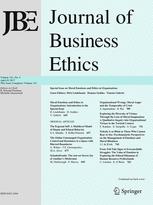
Institutions and Corporate Reputation: Evidence from Public Debt Markets
in: Journal of Business Ethics, No. 1, 2023
Abstract
Using data from China’s public debt markets, we study the value of corporate reputation and how it interacts with legal and cultural forces to assure accountability. Exploring lawsuits that change corporate reputation, we find that firms involved in lawsuits experience a decrease in bond values and a tightening of borrowing terms. Using the heterogeneities in legal and social capital environments across Chinese provinces, we find the effects are more pronounced for private firms, firms headquartered in provinces with low legal protections, and firms headquartered in provinces with high social capital. The results show that lawsuits that allege misconduct are associated with reputational penalties and that such penalties serve as substitutes for legal protections and as complements to cultural forces to provide ex post accountability and motivate ex ante trust.

COVID-19 Pandemic and Global Corporate CDS Spreads
in: Journal of Banking and Finance, February 2023
Abstract
We examine the impact of the COVID-19 pandemic on the credit risk of companies around the world. We find that increased infection rates affect firms more adversely as reflected by the wider increase in their credit default swap (CDS) spreads if they are larger, more leveraged, closer to default, have worse governance and more limited stakeholder engagement, and operate in more highly exposed industries. We observe that country-level determinants such as GDP, political stability, foreign direct investment, and commitment to crisis management (income support, health and lockdown policies) also affect the sensitivity of CDS spreads to COVID-19 infection rates. A negative amplification effect exists for firms with high default probability in countries with fiscal constraints. A direct comparison between global CDS and stock markets reveals that the CDS market prices in a distinct set of corporate traits and government policies in pandemic times.
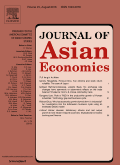
Trust and Contracting with Foreign Banks: Evidence from China
in: Journal of Asian Economics, December 2022
Abstract
We empirically investigate whether firms doing business in regions characterized as having high social trust receive preferential treatment on loan contractual terms by foreign banks. Tracing cross-border syndicated lending activities in China, we document that firms located in provinces with higher social trust scores obtain significantly low costs of bank loans and experience less stringent collateral requirement. To address the potential endogeneity issues, we adopt an instrumental variable approach and a two-sided matching model, and report consistent results. We also estimate a system of three equations through three-stage-least square estimator to accommodate the joint determination of price and non-price terms in loan contracts. In addition, we find that the effect of social trust on cost of bank loans is more prominent for firms located in provinces with relatively less developed formal institutions.
Working Papers
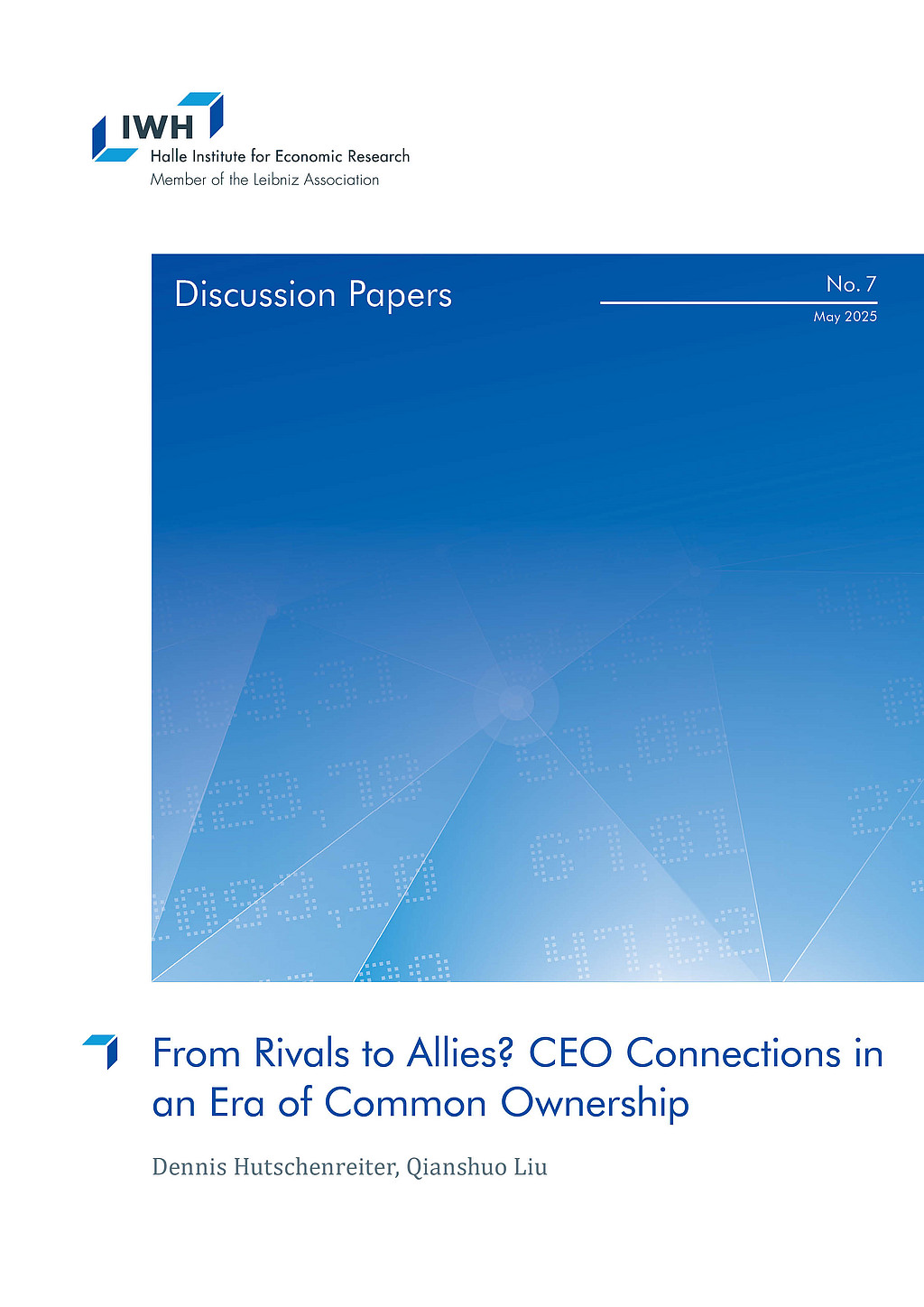
From Rivals to Allies? CEO Connections in an Era of Common Ownership
in: IWH Discussion Papers, No. 7, 2025
Abstract
<p>Institutional common ownership of firm pairs in the same industry increases the likelihood of a preexisting social connection among their CEOs. We establish this relationship using a quasi-natural experiment that exploits institutional mergers combined with firms’ hiring events and detailed information on CEO biographies. In addition, for peer firms, gaining a CEO connection from a hiring firm’s CEO appointment correlates with higher returns on assets, stock market returns, and decreasing product similarity between companies. We find evidence consistent with common owners allocating CEO connections to shape managerial decisionmaking and increase portfolio firms’ performance.</p>
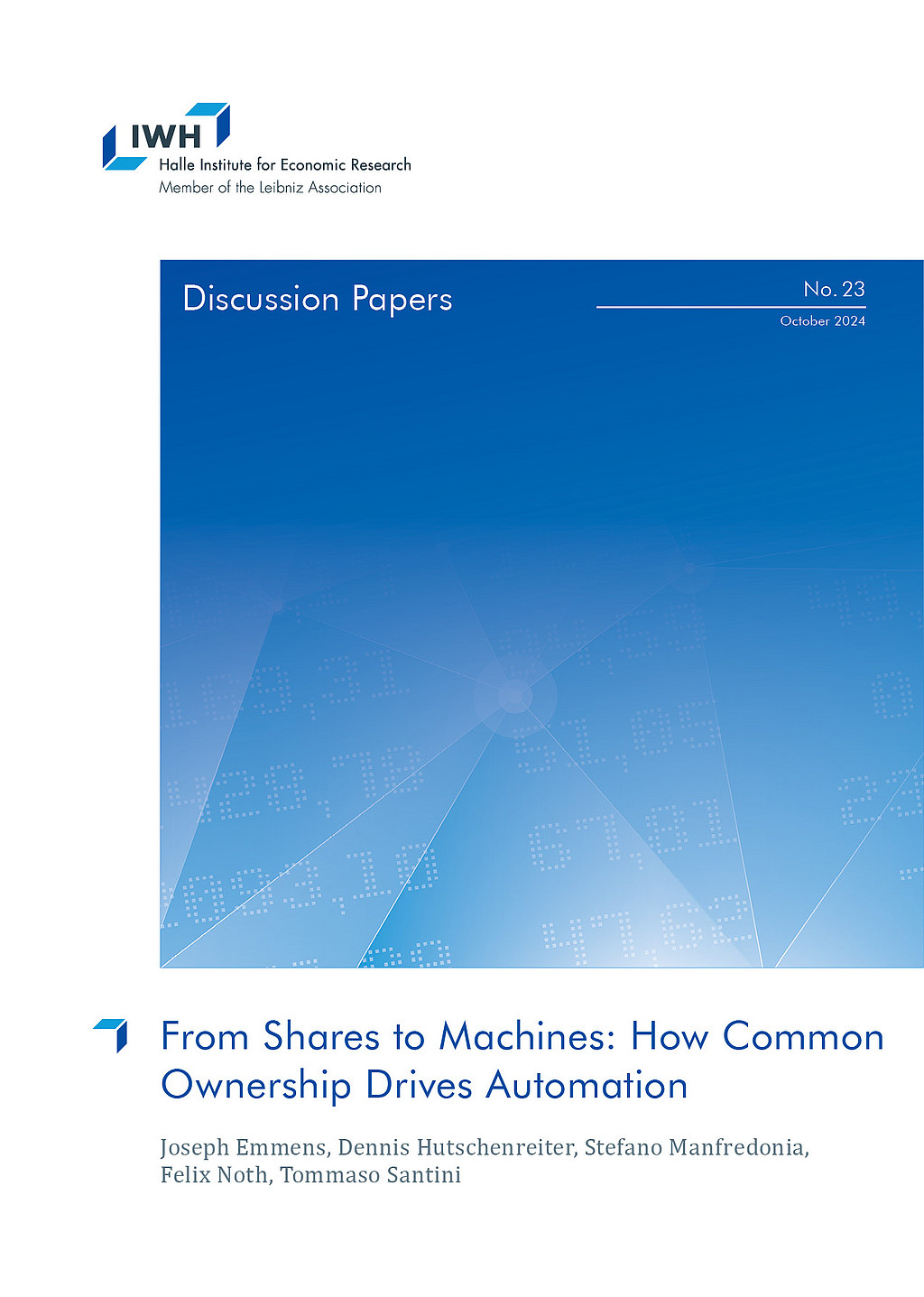
From Shares to Machines: How Common Ownership Drives Automation
in: IWH Discussion Papers, No. 23, 2024
read publication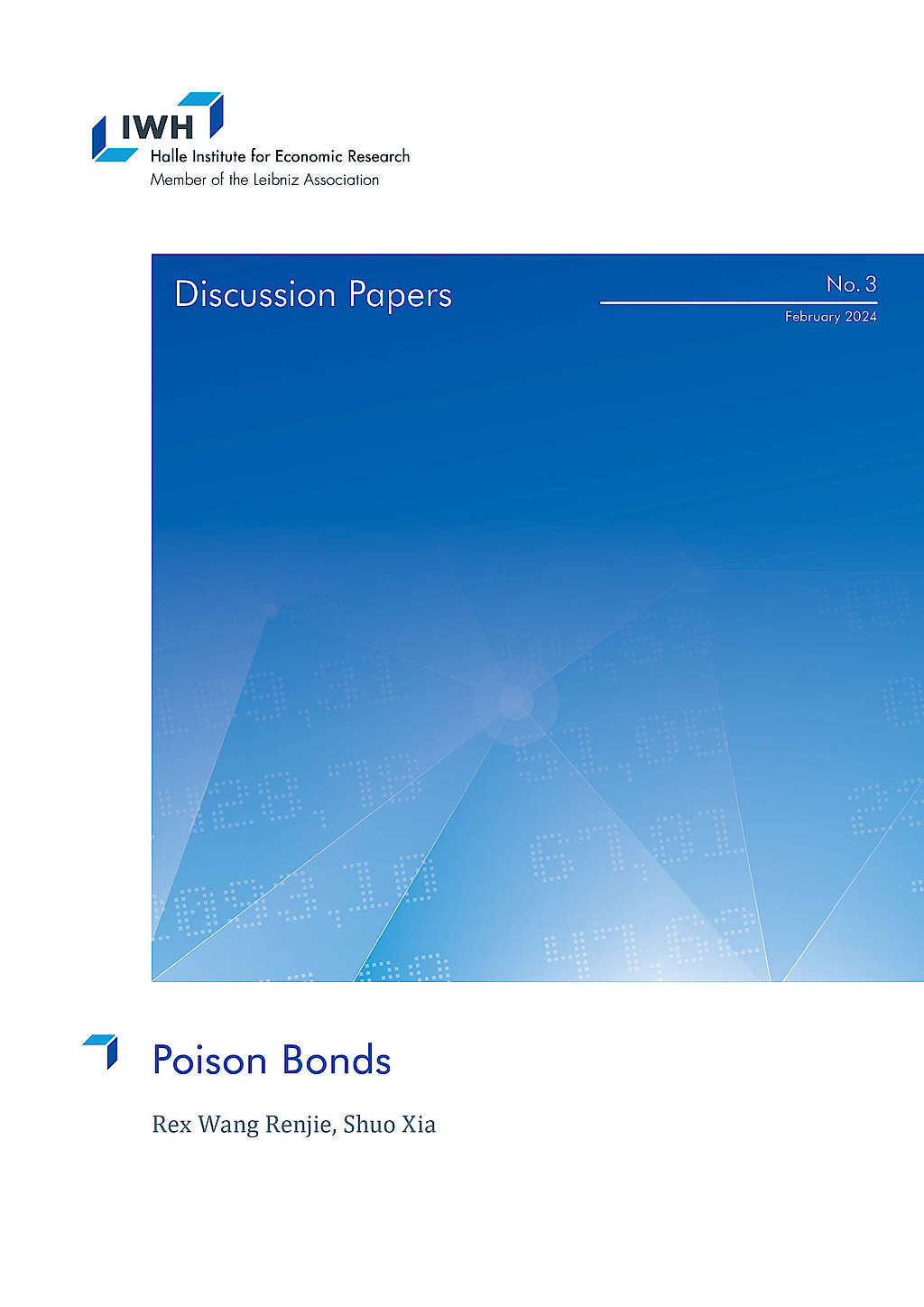
Poison Bonds
in: IWH Discussion Papers, No. 3, 2024
Abstract
This paper documents the rise of “poison bonds”, which are corporate bonds that allow bondholders to demand immediate repayment in a change-of-control event. The share of poison bonds among new issues has grown substantially in recent years, from below 20% in the 90s to over 60% since mid-2000s. This increase is predominantly driven by investment-grade issues. We provide causal evidence that the pressure to eliminate poison pills has led firms to issue poison bonds as an alternative. Our analysis suggests that this practice entrenches incumbent managers and destroys shareholder value. Holding a portfolio of firms that remove poison pills but promptly issue poison bonds results in negative abnormal returns of −7.3% per year. Our findings have important implications for the agency theory of debt: (i) more debt may not discipline the management; and (ii) even without financial distress, managerial entrenchment can lead to agency conflicts between shareholders and creditors.
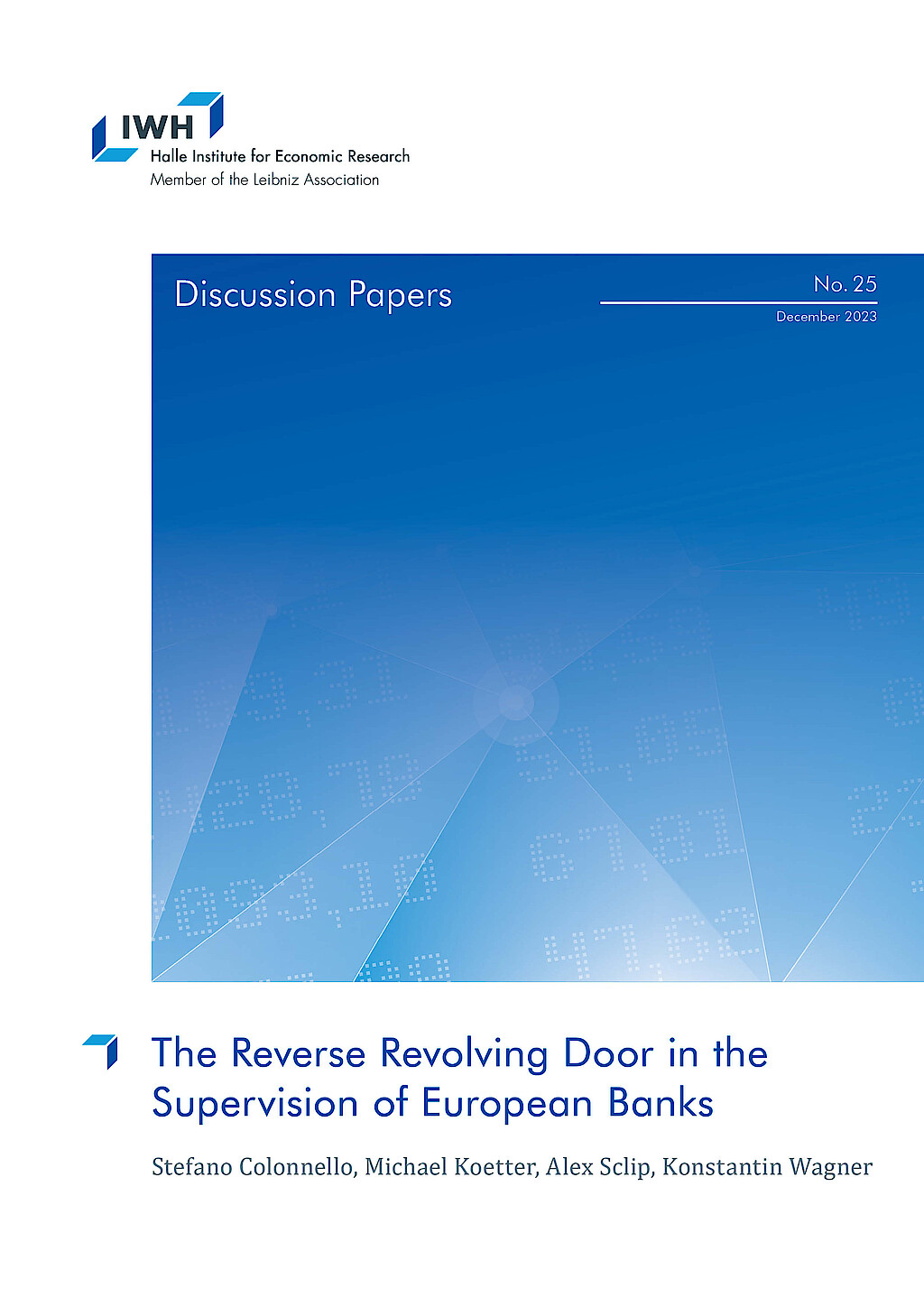
The Reverse Revolving Door in the Supervision of European Banks
in: IWH Discussion Papers, No. 25, 2023
Abstract
We show that around one third of executive directors on the boards of national supervisory authorities (NSA) in European banking have an employment history in the financial industry. The appointment of executives without a finance background associates with negative valuation effects. Appointments of former bankers, in turn, spark positive stock market reactions. This „proximity premium“ of supervised banks is a more likely driver of positive valuation effects than superior financial expertise or intrinsic skills of former executives from the financial industry. Prior to the inception of the European Single Supervisory Mechanism, the presence of former financial industry executives on the board of NSA associates with lower regulatory capital and faster growth of banks, pointing to a more lenient supervisory style.

Poison Bonds
in: SSRN Discussion Paper, 2023
Abstract
This paper documents the rise of "poison bonds", which are corporate bonds that allow bondholders to demand immediate repayment in a change-of-control event. The share of poison bonds among new issues has grown substantially in recent years, from below 20% in the 90s to over 60% after 2005. This increase is predominantly driven by investment-grade issues. We provide causal evidence that the pressure to eliminate poison pills has led firms to issue poison bonds as an alternative. Further analyses suggest that this practice entrenches incumbent managers, coincidentally benefits bondholders, but destroys shareholder value. Holding a portfolio of firms that remove poison pills but promptly issue poison bonds results in negative abnormal returns of -7.3% per year. Our findings have important implications for understanding the agency benefits and costs of debt: (1) more debt does not necessarily discipline the management; and (2) even without financial distress, managerial entrenchment can lead to conflicts between shareholders and creditors.










